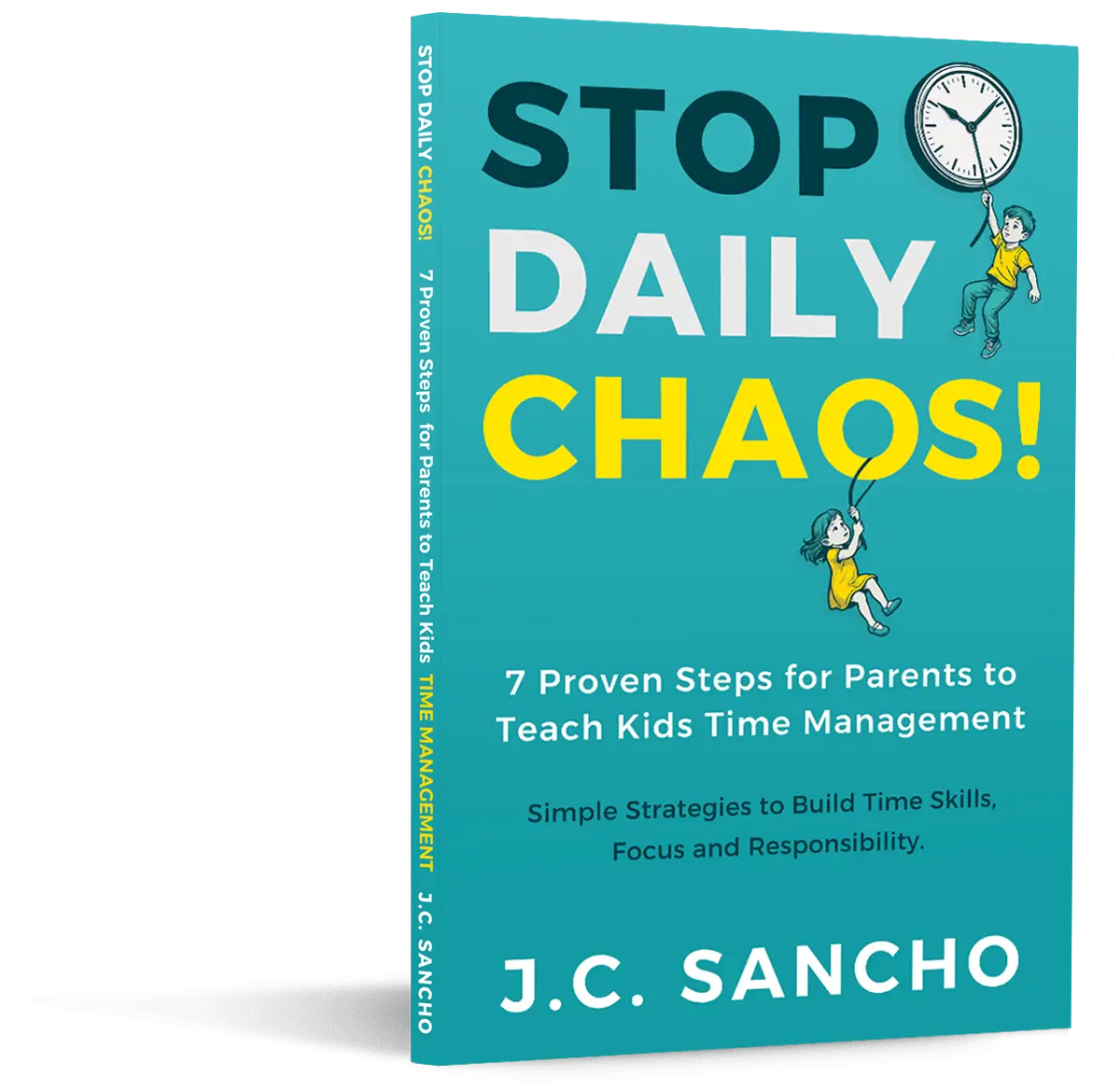Unmasking Parent Burnout: Lightening the Mental Load Through Effective Support Systems
Some days, parenting feels like juggling on a tightrope. We manage schedules, dinners, baths, school forms, extracurriculars, and remind ourselves that today’s meeting is tomorrow’s permission slip. Over time, this invisible effort piles up—and many of us reach a breaking point without even realizing it.
That exhaustion you feel? It’s real. It isn’t weakness. It’s burnout. And if you’re carrying most of the mental load in your home, the burnout hits harder. The good news: it doesn’t have to stay that way. You can build systems, share burdens, and reclaim pieces of yourself—without sacrificing care for your children.
What Is Parent Burnout (and Why It Matters)
Parent burnout is more than fatigue. It’s a state of emotional, physical, and mental exhaustion caused by chronic stress. It shows up as irritability, disconnection from our children, feeling like we have nothing left to give, or resenting tasks we once enjoyed.
Research confirms this is a widespread issue. A recent systematic review identified many contributing factors—from perfectionism and societal pressure to imbalance between demands and personal resources. (Source)
Another major factor is how tasks, especially the “invisible” ones, are divided. Studies show that mothers often shoulder up to 71% of the household’s mental tasks (scheduling, planning, anticipating needs). (Source) That constant cognitive labor is exhausting and has been linked with depression, stress, and strained relationships. (Source)
When burnout takes hold, relationships suffer. A study from Ohio State University found that parental burnout was associated with higher levels of stress, anxiety, and harsh parenting behaviors. (Source)
The U.S. Surgeon General also highlights that parents report higher stress than other adults, often feeling overwhelmed or under-supported. (Source) This matters. When parents struggle, children feel it too.
Identifying the Signs: When Burnout Is Knocking
Before burnout spirals, there are early signals:
- Feeling emotionally drained or hollow, even after rest
- Reduced patience or frequent irritability with children over small things
- Guilt or self‑criticism about not doing enough
- Loss of joy or connection in parenting moments you once loved
- Chronic fatigue, trouble sleeping, or poor self‑care
- A growing sense of “I can’t keep this up forever”
If you’re reading this and feeling a pang of recognition, you’re not alone—and the first step toward change is acknowledging that the weight is too heavy for one person to carry alone.
Understanding the “Mental Load” and Why It’s a Hidden Weight
The mental load is the engine behind burnout. It isn’t just doing—it’s thinking, anticipating, planning, coordinating, and often worrying about things no one else even sees.
This includes:
- Remembering birthdays, doctor’s appointments, and school deadlines
- Meal planning, grocery lists, and matching preferences
- Managing children’s clothes, activities, and transitions
- Tracking household consumables (toilet paper, cleaning supplies)
- Emotional labor—reminding, comforting, navigating conflict
Because mental load is internal, it’s easier to ignore or undervalue. But carrying it continually exacts a toll. One study found that mothers who bore the bulk of cognitive labor were significantly more likely to report symptoms of anxiety and depressive disorders. (Source)
What It Looks Like to Share and Lessen That Load
Lightening the load doesn’t mean perfect balance overnight. It means building systems and a home culture that distribute the work more fairly. Here’s how to get started:
Step 1: Map & Own the Load (Make It Visible)
Start by writing out EVERYTHING you think about—big or small. You’ll likely find more entries than you expect. Turn that list into a “household responsibilities chart.” When responsibilities are visible, they’re more easily shareable.
Step 2: Open Honest Conversations
Talk to your partner (or your support system) about how you feel—with vulnerability, not blame. Use “I” statements like: “I feel depleted when I’m managing all the behind-the-scenes tasks alone.” Give specific examples. The goal is insight, not guilt.
Step 3: Assign Ownership, Not Just Tasks
Rather than delegating chores, assign “owners” for domains. One person might own school logistics, another the meal plan, another weekend cleaning. Ownership builds long-term habits and accountability. When someone owns something, they think ahead—just like you’ve been doing.
Step 4: Age-Appropriate Contributions from Kids
Children can and should be part of the solution. Chores teach responsibility and lighten your load:
- Ages 2–4: pick up toys, dust low surfaces, sort laundry by color
- Ages 5–7: set the table, match socks, water plants
- Ages 8–12: prepare simple meals, vacuum, take out the trash
Use charts, timers, and positive reinforcement. Children feel empowered when they contribute meaningfully.
Step 5: Automate & Systematize
Every decision you automate is mental space regained:
- Use shared digital calendars to track appointments, practices, and school events
- Automate bill payments, grocery lists, and recurring subscriptions
- Theme your week: Taco Tuesday, Laundry Wednesday, Screen-Free Friday
Step 6: Build Redundancy
No household should rely on one person remembering everything. Teach and delegate, so others can step in when life gets hard. Have routines written down and accessible to others. Create a “when mom’s tired” plan that others can run without you.
Self-Care Isn’t Optional—It’s Essential
Burnout worsens when self-care becomes a luxury. It isn’t. It’s a lifeline.
- Schedule short breaks: a walk, music, coffee on the porch
- Prioritize sleep by reducing phone time at night and using calming routines
- Set firm boundaries with time and energy—decline things you can’t manage
- Connect with friends and other parents who get it
The more consistent your self-care becomes, the more resilient your parenting foundation is.
When to Seek Professional Help
If burnout lingers or worsens, professional support can help you reset and rebuild. You might need more than rest—you might need healing. Consider counseling or therapy if:
- You feel persistently numb or hopeless
- You’re emotionally disconnected from your kids
- You’re struggling to function day-to-day
- You’ve lost interest in things you used to enjoy
There’s no shame in seeking help. Your kids need a parent who’s supported too.
Rebuilding a Culture of Shared Responsibility
When the load lightens, your family dynamic changes. You model teamwork. You raise children who respect effort and equity. You create systems that carry the weight with you—not ones that expect you to carry it all alone.
Revisit your household systems regularly. Adjust as needed. Celebrate small shifts—like when your partner restocks the pantry without being asked or your child independently empties the dishwasher.
This is a process, not a perfection. But every step you take toward balance matters.
Your Light Matters Too
We glorify self-sacrifice in parenting. But the truth is: you matter too. Your rest matters. Your voice matters. Your ability to feel joy in parenting again matters.
Burnout is not a sign that you’re failing. It’s a signal that something needs to change—and you are allowed to change it.
As you begin to unburden, remember: when you care for yourself, you are not subtracting love from your family—you are multiplying it.



